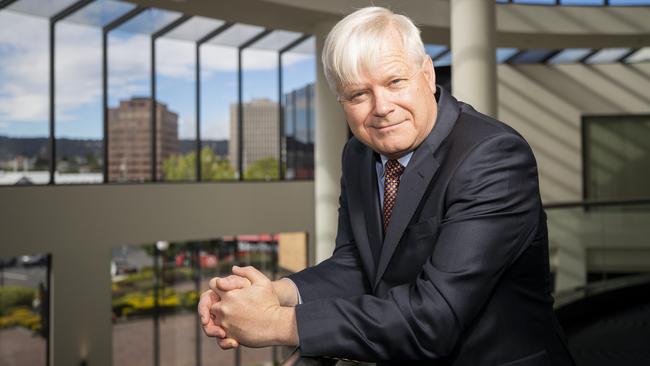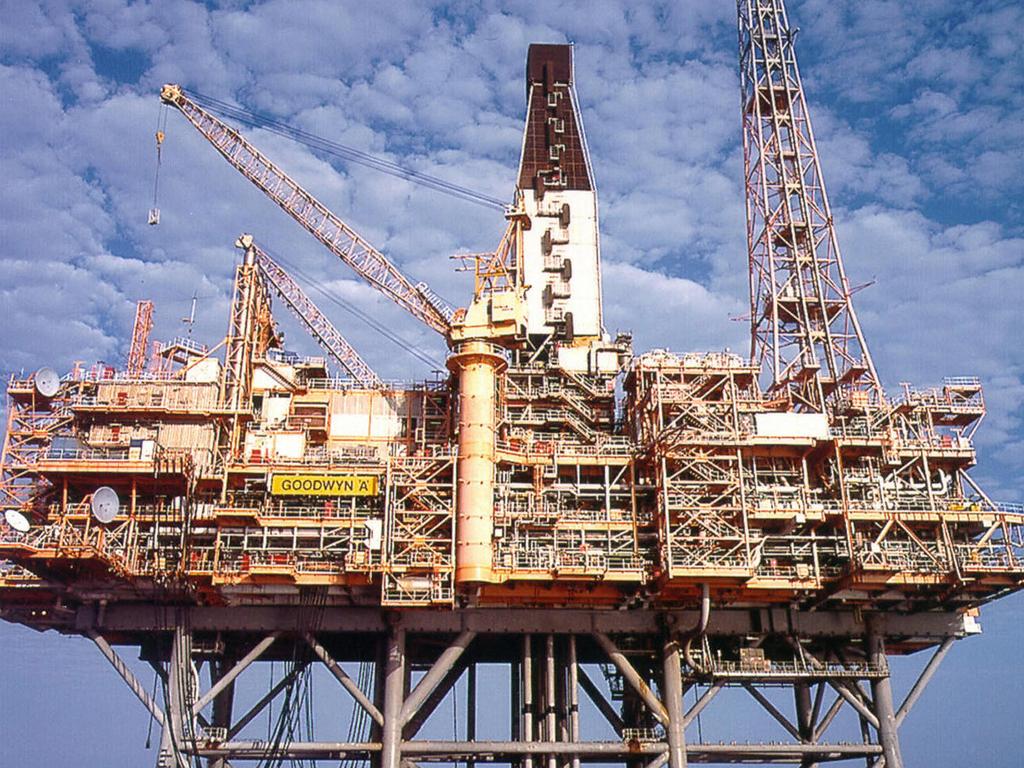Exports, inflation and strong economy improve budget bottom line
Bumper export prices, high inflation and a strong economy have improved Canberra’s budget bottom line, with a $14.7bn underlying cash deficit for the first half of the financial year.

Bumper export prices, high inflation and a strong economy have improved Canberra’s budget bottom line, with a $14.7bn underlying cash deficit for the first half of the current financial year.
The overall result is an $11.5bn improvement on Treasury’s budget profile in October, which estimated a shortfall of $26.2bn by December and a full-year underlying deficit of $36.9bn by June.
Surging resource company profits boosted receipts by almost $9bn more than expected in October, while government spending was $2.8bn lower, as the jobless rate remained at a near-50 year low of 3.5 per cent over the period.
On prevailing trends, some economists were anticipating the 12-month rolling underlying cash balance would slip into the black of a slight surplus, but figures on Friday from the Department of Finance showed a calendar year deficit of $9.4bn.
“Close but no cigar,” said veteran independent budget expert Chris Richardson of what he called the ongoing “remarkable recovery” in the underlying cash balance.
Two years ago, after the emergency fiscal responses in the first year of the pandemic, the annual deficit broke through $200bn.
The temporary and targeted nature of the stimulus, as well as the strong recovery in the economy and a labour market at full employment, have turned the tide.

CBA head of Australian economics Gareth Aird said further improvement in the budget balance is likely, but fiscal policy remains a source of risk.
“The government may be tempted to recycle some of that windfall revenue back into the economy later in the year,” said Mr Aird, who expects a rapid slowdown in spending due to aggressive central bank interest rate rises.
“This could influence the trajectory for the economy and, by extension, the Reserve Bank.
“The probability of RBA rate cuts in late 2023 falls if the government opens up the purse strings.”
Projections by the independent Parliamentary Budget Office and Treasury point to entrenched deficits of around $40-50bn a year over the coming decade, driven by rising debt interest charges and spending on disability services, aged care, health and defence.
Jim Chalmers has said his second fiscal outing, due in May, would put “the budget on a more sustainable footing”.
At the end of December, net federal debt was $525.4bn, which economists said is a better-than-expected result and well short of the “trillion dollars in debt” that surrounds the Albanese government’s political rhetoric about the trajectory of gross debt bequeathed by the Coalition.
Mr Richardson said better-than-budgeted outcomes are the norm around the world right now.
“That’s not because governments are taking hard decisions – it’s because inflation is doing the heavy lifting,” the Rich Insight principal said.
“Inflation boosts the tax take more than it boosts government spending.
“Even more importantly, though, it’s an old truth that inflation redistributes wealth – not between rich and poor, but between debtors and creditors.
“And pretty much all governments are debtors, and they all had to load up even further on debt through the Covid crisis.”
Mr Richardson said federal debt-to-national-income ratio still looks to be on a path that’s well below official estimates for it – even though those official estimates have also been shrinking fast.
As a food and energy exporter, Australia has benefited from price rises due to Russia’s invasion of Ukraine through a higher tax take.
Now that energy prices are normalising, Mr Richardson said “China’s reopening has added to iron ore prices, meaning the gift that keeps on giving – commodity prices well above where the budget assumed they’d be – is continuing to strut its stuff”.
“The upshot is that the boost to revenues is bigger in Australia than elsewhere, and the boost to national income is bigger in Australia than elsewhere,” he said.
“To be clear, the good news on the budget is temporary, whereas the bad news is permanent. What’s happening is a windfall, not a solution. Yet it’s a welcome windfall nonetheless.”








To join the conversation, please log in. Don't have an account? Register
Join the conversation, you are commenting as Logout